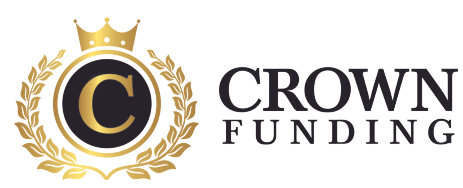
Do You Need a Credit Score to Buy a House?
Why Your Credit Score Can Be Useful in Home Purchases
A credit score, which has three digits, measures your capacity to pay back loans. When you initially start accumulating debt, typically with a credit card, you receive a credit score. Scores can be between 300 and 900, although your initial result will probably be in the middle of the range.
Revolving credit and installment credit make up the majority of your credit score. Periodically, revolving credit is used. You can borrow a small amount each month if you pay it back. Most Canadians use a credit card to incur revolving debt. A lump amount loan is typically an installment credit. You are permitted to utilize it once you have paid off the debt. Most Canadians acquire installment debt through mortgages or vehicle payment loans.
A low credit score is undesirable since it indicates a pattern of borrowing money and being unable to pay it back. Most lenders will only offer you a loan if your score stays below a specific level. A “no score” is different from a low score. You still need to show that you can pay off your debt, but you still need to demonstrate that you’re a reckless borrower.
Lenders often want documentation of your financial situation and history before approving your mortgage application. This can contain your credit record and score, employment documentation, tax returns, income statements, and more. Your lender will use these documents to assess the level of risk you provide to them as a borrower and modify your mortgage conditions and rates as necessary. Your terms and rates will be better the higher your income and credit score.
How to Purchase a Home Without Credit Score
If you have so far been able to refrain from getting any loans or credit cards, you might discover that your credit score doesn’t even exist. Fortunately, there are still a few options for purchasing a home without one:
With Cash
Your credit score establishes your creditworthiness, which aids in your mortgage qualification. However, if you have the money to pay for your house in cash, you might not even need to meet the requirements for a loan. For many people, paying in whole for a property is an unusual situation, yet it is the most reliable approach to buying a home without a credit score.
Make a larger down payment.
A portion of the home’s value must be paid in advance when you buy it. The down payment is what it is termed. Your lender will pay the remaining value of the house through a mortgage loan. Your mortgage loan will be less the more money you put down. Therefore, lenders will typically favor applicants who make large down payments. Offering a sizable down payment is a great way to increase your chances of being accepted if you have no credit history.
Think about adding a co-signer.
Despite your planning and evidence, your lender can still hesitate to approve you if you don’t have a credit score. You might have to have a co-signer on your lease in this situation. Your chances of getting approved will increase if you have a spouse or other family member willing to sign the mortgage in your name. However, it’s critical to realize that co-signing a mortgage carries many risks. Your co-signer will be responsible for the loan balance if you cannot make regular payments.
Additional Lenders
If you can’t get a mortgage loan from a bank, consider looking into private lenders. Alternative lenders are frequently more lenient than AAA lenders, which often maintain very tight qualification rules. A credit score is not at all necessary for some loans. Private lenders may charge higher rates while having more flexible acceptance criteria to cover the increased risk you pose.
How to Improve Your Credit Score
Of course, establishing a credit score is the best strategy to increase your chances of being approved. To establish credit, borrow modest sums and repay them on time repeatedly. Consider applying for a credit card or getting a few small installment loans. You can demonstrate to your lender that you can repay your home loan by explaining that you can make your credit card payments on time.
Building credit is, unfortunately, easier said than done. Your financial credibility will only appear after some time. You should start improving your credit score at least a year before you apply for a mortgage. It will take at least a year for the impact of your payments to affect your score, even if you open a new credit account. Additionally, requesting new credit lines will always lower your score.
Crown Funding Mortgage Broker can assist you no matter where you are in the credit process. You can receive a private consultation from our knowledgeable brokers to decide which option is best for you. Through our network of more than 50 lenders, we will match you with the ideal mortgage based on your specific financial position.
Get in touch with Crown Funding Mortgage Broker Surrey immediately to arrange your free consultation!
